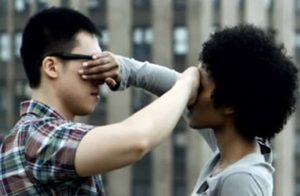 Let’s start with a small mental experiment today. Imagine you walked into a room of a major corporation and every single person in the boardroom was black. Wouldn’t you think this is weird? Now imagine that you walked into another Fortune 500 company and all people in the boardroom were white males…
Let’s start with a small mental experiment today. Imagine you walked into a room of a major corporation and every single person in the boardroom was black. Wouldn’t you think this is weird? Now imagine that you walked into another Fortune 500 company and all people in the boardroom were white males…
When will it be that we think this is weird too?
This thought experiment—together with the deeply provoking question—comes from a very interesting and engaging TED talk by Mellody Hobson, investment expert and president of Ariel Investments. Being a highly successful business woman, Mellody recalls and laughs about an incident when, together with her friend, who was a candidate running for U.S. Senate at that time, the two were mistaken for kitchen helpers. Why would that happen? Well, Ms. Hobson also happens to be a black woman.
As stated in one of my earlier blog posts, it seems that topics of discrimination based on race (or gender, etc.) should be relicts of the past. Indeed, Barack Obama was elected for president in 2009 already—didn’t this signify the end of racial discrimination?! Both anecdotal and empirical evidence suggest however that this is not true. For example, a recent FT article highlights the prevailing disadvantages for people with ‘color’ or ‘non-white’ names within the labor market. As several academic studies confirm (e.g. here and here), in terms of securing a job, being Emily is better than being Lakisha, and being white is better than being black or Latino. Similar discrimination also exists with regard to the Asian-American minority. As per a recent Economist article, despite being the most successful minority, Asian-Americans tend to hit the so-called ‘bamboo ceiling’ in areas of education, politics and business.
Hence, race discrimination has to be raised and spoken about, although, as Mellody admits, this topic makes people highly uncomfortable. Maybe this is one of the reasons we may so easily fall into the trap of ‘color-blindness’. Color-blindness proposes that ‘racial categories do not matter’ and ‘that social categories should be dismantled and disregarded, and everyone should be treated as an individual’. In other words, by proclaiming that ‘we do not see color’ (hence race) we could promote racial harmony?
In her TED talk, Mellody sees color-blindness rather as a risk, because it gives us a perfect reason not to deal with the issue and ignore the problem. I would agree. ‘Whatever difference-blindness’ does not help celebrating diversity and seeing it as a benefit—quite the opposite. Moreover, when we refuse to see racial differences, we are much more prone to all sorts of unconscious biases. Indeed, there is increasing research evidence suggesting that color-blind ideologies may negatively impact racial attitudes.
Ms. Hobson argues that instead of being color blind, we should be color brave! As she continues, it is not just a ‘right’ thing to do, it is also a ‘smart’ thing to do, as businesses may benefit from acknowledged and well-utilized diversity. Facebook seems to be a good example here, as according to Maxine Williams, its global director of diversity, Facebook needs MORE differences to be the company they want to be, and they take active steps to improve diversity and inclusion. When greeting new hires in Facebook, Maxine Williams highlights the following message, which sounds nothing less than being color (and generally diversity-) brave to me: “I don’t want you to come in here and think that you need to use ‘blind’ as a suffix. That you need to describe people as ‘just my colleagues’ or say things like, ‘I don’t see race. I don’t see gender. I’m colorblind. Sexual-orientation blind.’ In doing so you’re neutralizing a part of a person that is an asset. I want you to see those characteristics and see them as adding value.”


Very touching and true article. Racism must stop. There must be one race and that’s humanity, skill and talent. Your article is truly colorful.
Great Article, the racial discrimination it is on the rise with recent events.
We live in society with different views on this problem. There are many countries with high developed racing discrimination. I did research in college, even Europe cannot resolve it, but our country has much more possibilities to prevent it.
Racism is a problem of the heart and there is only one Person who can solve that. Some may laugh but there is no Ted talk or govt program that can fundamentally change the human heart.
Because this fallen world will always have racist people (not groups), the market for race hustlers will always be around, and lucrative for some, i.e sharpton, Shaun king, blm, etc.
I live treating others as I would want to be treated and have never had a problem. If you want to continually have candid conversations with people about race, don’t be surprised if they start avoiding you. All you’re doing is coming across as a one dimensional person. The same would apply if it were religion, sports, cars, etc. Be genuine, treat others with kindness, and seek God. Seeking anything/anyone else will leave you empty.